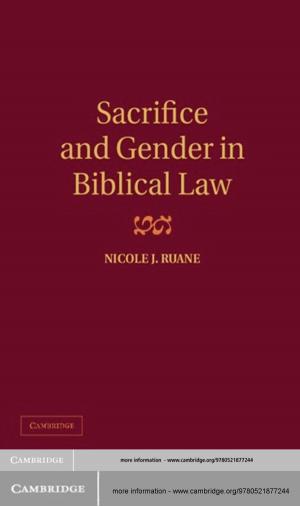| Author: | Hubert Haider | ISBN: | 9781139610407 |
| Publisher: | Cambridge University Press | Publication: | December 13, 2012 |
| Imprint: | Cambridge University Press | Language: | English |
| Author: | Hubert Haider |
| ISBN: | 9781139610407 |
| Publisher: | Cambridge University Press |
| Publication: | December 13, 2012 |
| Imprint: | Cambridge University Press |
| Language: | English |
In this illuminating new theory of grammar, Hubert Haider demonstrates that there is a basic asymmetry in the phrase structure of any language, whatever sentence structure it takes. Moreover, he argues that understanding this asymmetry is the key to understanding the grammatical causality underlying a broad range of core syntactic phenomena. Until now, Germanic languages have been seen to fall into two distinct classes: those which take an object-verb sentence structure (OV) or a verb-object one (VO). However, by examining the nature of this universal underlying asymmetry, Hubert Haider reveals a third syntactic type: 'Type III'. In particular, he employs the third type to explore the cognitive evolution of grammar which gave rise to the structural asymmetry and its typological implications. Symmetry Breaking in Syntax will appeal to academic researchers and graduate students involved in comparative and theoretical syntax and the cognitive evolution of grammar.
In this illuminating new theory of grammar, Hubert Haider demonstrates that there is a basic asymmetry in the phrase structure of any language, whatever sentence structure it takes. Moreover, he argues that understanding this asymmetry is the key to understanding the grammatical causality underlying a broad range of core syntactic phenomena. Until now, Germanic languages have been seen to fall into two distinct classes: those which take an object-verb sentence structure (OV) or a verb-object one (VO). However, by examining the nature of this universal underlying asymmetry, Hubert Haider reveals a third syntactic type: 'Type III'. In particular, he employs the third type to explore the cognitive evolution of grammar which gave rise to the structural asymmetry and its typological implications. Symmetry Breaking in Syntax will appeal to academic researchers and graduate students involved in comparative and theoretical syntax and the cognitive evolution of grammar.















